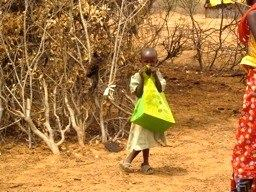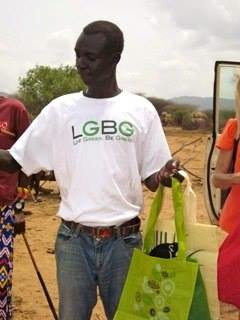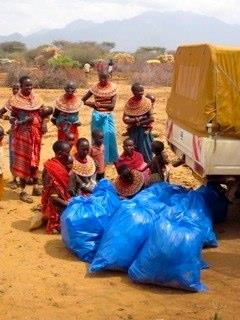A while back, we had a member of the community, Shahla Butler, raise some project concerns regarding our “Bag Project.” We are gearing up to launch another project and I wanted to provide responses to her concerns as a way to address any concerns that others might have. Please find the exchange below:
Shahla Butler: I am NOT in the habit of parading my credentials; since in the normal course of Garden Club activities there is no reason to do so; but in this case, I feel that I ought to tell you that I have a Ph.D., in Chemistry, from one of the top schools in the field, namely the University of Chicago. I only bring this up, so you do not write off my comments too swiftly.
There is no doubt that plastic bags are a scourge on the environment and all of us who care about the environment would like to do something meaningful to combat the pollution they are inflicting on the world.
However, I feel strongly that we should not impose another “Western Solution” on native people who have had perfectly good solutions for generations; if not millennia; as to what works in their communities and cultures. Africans have been taking goods to market, bringing water to their village and transporting objects for millennia, without resorting to either plastic, or so called “reusable” bags.
Our Response: This is such an important point you bring up because we agree that many well meaning so called ‘charitable’ (and that word itself is a problem to me) projects in developing countries have been useless and often do not involve the local people in helping figure out a solution.
The bag project started in a rural village outside of Arusha, Tanzania and was developed by an American, Lori Robinson, and a local woman, Anna.
You are perfectly correct that the African people have used baskets for carrying things for years. Unfortunately when the ” western solution” of plastic bags came along, the basket became extinct. They are rarely seen now. You are probably aware that the plastic bags they use there are a smaller, thinner version of ours and thus they tear and shred and are useless after one use. The hope for the project long term was to clean up the trash, an immediate solution that involved an educational component of why plastic litter is harmful (they burn it, throw it to the wind, and mosquitoes breed in the puddles collected in the litter) and hopefully the art of basket weaving would be revived once the bags are no longer favored. In fact Tanzania banned them from being manufactured shortly after our project started.
Shahla Butler: TRANSPORTING objects in Africa is NOT the problem to be solved. If plastic bags have become too popular it is presumably because they are cheap and easy to acquire. Collecting harmful plastic, reducing its distribution, and educating the local population about its harmful effects is the problem that needs to be addressed!
Our Response: Yes, it was not the bags per say we were concerned about. It was how they were being disposed of. They tear and are left to shred in the environment. Also they are burned because there is no local garbage pick up. The toxins from burning the trash is known to be harmful.We continue to look for ways to recycle the litter into various things and in some areas that is happening. But generally the litter is so shredded and dirty that it is difficult to reuse it.
Shahla Butler: Unfortunately, the so called “reusable bags” have their OWN problems. Not the least being that those that are made of petroleum products still emanate harmful vapors and, the plastics as well as those made of various clothes need to be laundered if they are to remain clean. There is growing evidence that reusable bags that are in frequent touch with “groceries” and are not laundered are exposing people to harmful bacteria. We would NOT be doing anyone a favor if we solve one problem by introducing another!!
Our Response: We are careful to ask for canvas totes and they are laundered. The canvas totes are loved by the women for all kinds of uses. They use them as purses, grocery totes, and children use them to carry things to and from school. They have also provided inspiration to women to make their own as canvas is a much available material there due to all the safari outfitters using it for their tents, vehicles, etc.
Shahla Butler: If the call to action in this case would be to donate $1 for every 20-30 bags collected, we would be happy to solicit, encourage and educate our Club members. Given the nature of incentives for poor folks in Kenya (and other African countries) money may be an incentive to collect and dispose of harmful plastic bags. However, exchanging an old problem with a new one, at the cost of bag (even if surplus) +$1 that does not go to recipient, but some transportation giant, and does not actually BENEFIT the recipient is not attractive. Neither is the thought of replacing today’s fashionable emergency with tomorrow’s.
Our Response: The plastic bags cost money for these women to buy and they are thrilled to have a tote. We have thought long and hard about using money instead but it felt demeaning. It is common for a thousand women to show up for each exchange and they are so excited to get the tote. Not only because it is practical and useful but it is something they are getting from someone in America. In America they are recycled. Target for instance had 2,000 beautiful new totes they were throwing out because they wanted a new design. We took those to Africa. There is a connection to the fact that we are all caring about each other and the environment.
The money collected with the totes goes to pay local people who are working with us to spread the word before a project, the coordinator on the ground for the project (people from America do not go to do the project ), to hire a truck to haul away the garbage, helpers the day of the project to load the garbage, and an interpreter to talk about litter, and to pay for extra luggage fees for travelers to Africa that we find and beg (:)) to carry the totes we have collected. $1 a tote barely covers all of that. There has never been any left over money. We are usually short of money.
We encourage everyone to share any additional project concerns that they have. Should you wish to become involved at any point, please shoot an email over to patrick@livegreenbegreen.com.







